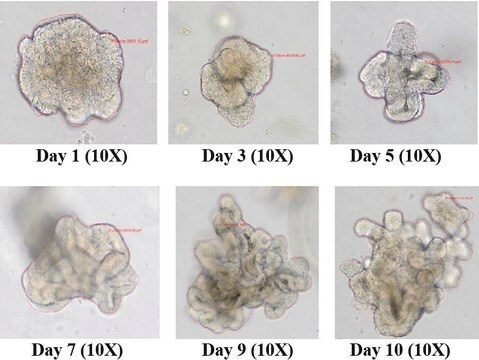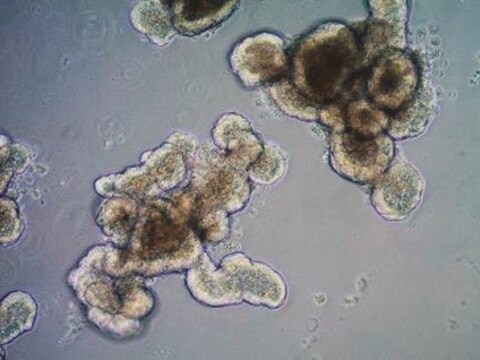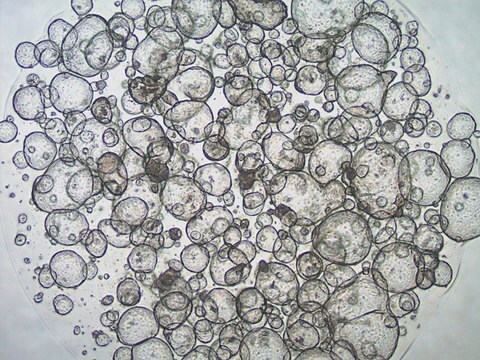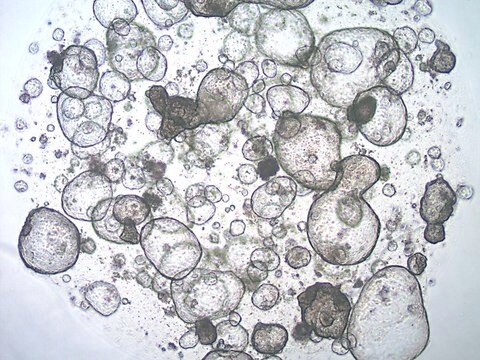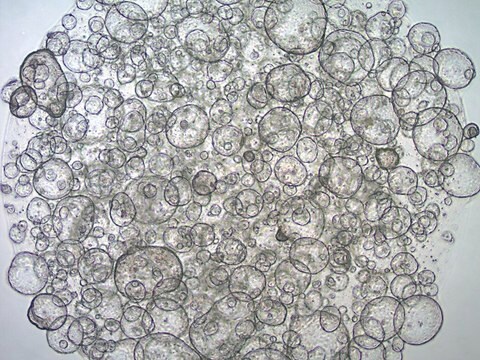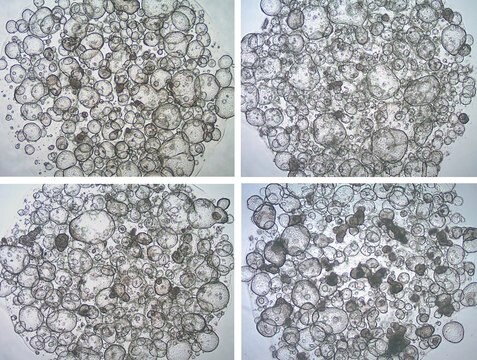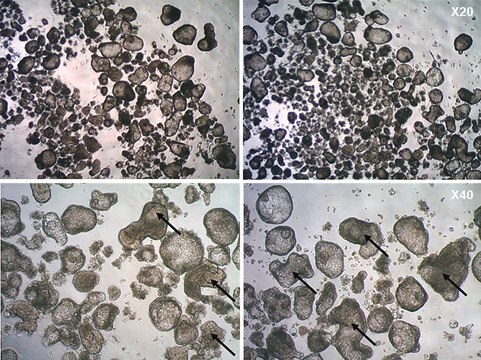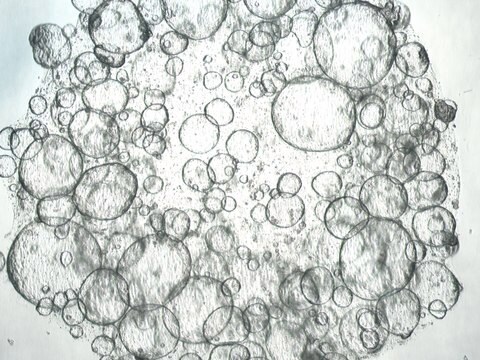SCC300
3dGRO® Human iPSC Derived Colon Organoids
Synonym(s):
Human Colon Organoids, Human Colonoids, Human Gut Organoids, Human Intestinal Organoids
About This Item
Recommended Products
form
liquid
technique(s)
cell culture | stem cell: suitable
application(s)
cell analysis
General description
3dGRO® Human iPSC Derived Colon Organoids are derived from integration-free human iPS cells (Cat. No. SCC271) reprogrammed using the Simplicon RNA reprogramming technology (Cat. No. SCR550). Human iPS cells were differentiated using a multi-step process from definitive endoderm to posterior hind-gut endoderm and eventually into colon organoids (Figure 1.). The organoids express colon-specific markers including the posterior hindgut marker CDX2, a-carbonic anydrase II (CA-II), a-carbonic anhydrase IV (CA-IV), and goblet cell markers Mucin-2 and Mucin-5B. 3dGRO® human iPSC derived colon organoids can be propagated long-term by passaging every 10-12 days using 3dGRO® Human Colon Organoid Expansion Medium (Cat. No. SCM304).
Application
Research Category:
- Cell Culture
- Stem Cell Research
Quality
- Each vial contains ≥1500 organoids.
- Mycoplasma: Negative
- Genotyped by STR analysis: Pass
- Human species verified
- Organoids are negative for HPV-16, HPV-18, Hepatitis A, B, C, and HIV-1 & 2 viruses by PCR.
- Cell viability test: Pass
Storage and Stability
Legal Information
Disclaimer
Storage Class
12 - Non Combustible Liquids
wgk_germany
WGK 1
flash_point_f
does not flash
flash_point_c
does not flash
Certificates of Analysis (COA)
Search for Certificates of Analysis (COA) by entering the products Lot/Batch Number. Lot and Batch Numbers can be found on a product’s label following the words ‘Lot’ or ‘Batch’.
Already Own This Product?
Find documentation for the products that you have recently purchased in the Document Library.
Articles
Organoid culture FAQs. Learn how to culture and analyze organoids following established 3D cell culture protocols. Tips and tricks.
Protocols
Highly characterized cryopreserved human colonic organoids and a step-by-step organoid culture protocol for epithelial intestinal organoid differentiation from iPS cells.
Our team of scientists has experience in all areas of research including Life Science, Material Science, Chemical Synthesis, Chromatography, Analytical and many others.
Contact Technical Service